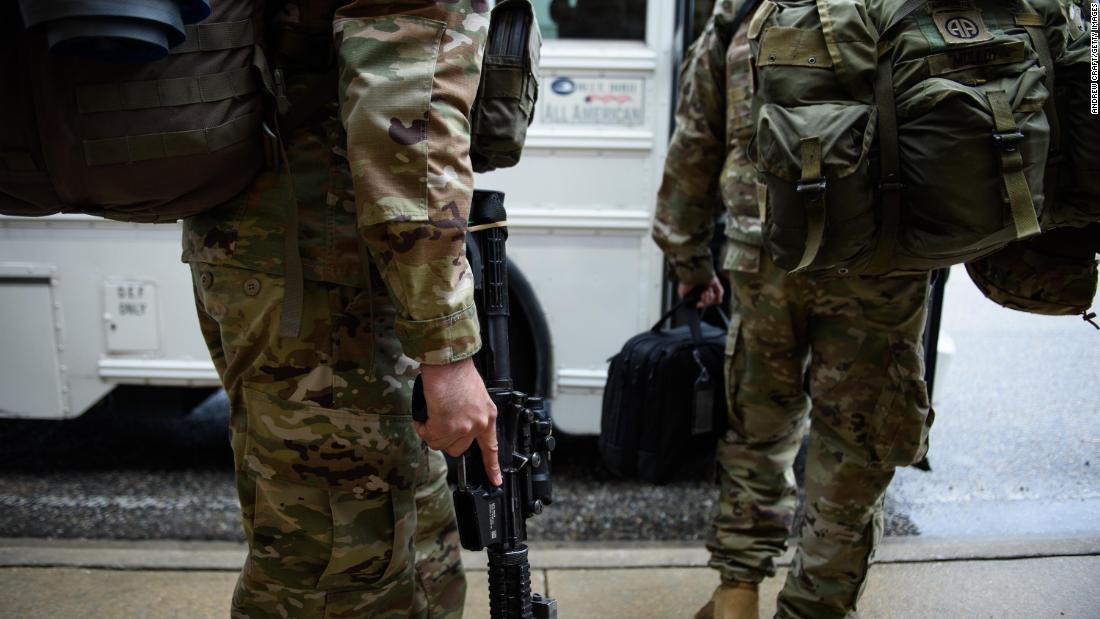
The alert reflects the heightened tensions between the US and Iran in the wake of last week's US drone strike that killed a top Iranian general, Qasem Soleimani. US officials have claimed the strike against the general was carried out to prevent an "imminent" attack in the region that would have put American lives at risk, but have so far declined to provide details about the intelligence.
US intelligence also has observed Iran moving military equipment, including drones and ballistic missiles, over the last several days. US officials said the movement may be an Iranian effort to secure its weapons from a potential US strike, or put them in positions to launch their own attacks.
"There were indications that we needed to monitor the threats" even more closely than is already being done, one of the US officials said, referring to Monday night's state of heightened alert. The second official described it as "all Patriot batteries and forces in the area on high alert" against an "imminent attack threat."
Iran has put missiles on its drones that have been used in other attacks, including a significant attack on Saudi oil installations last year. While forces have already been on high alert for several days, they were even more vigilant Monday night, both officials said.
Based on the intelligence, the US was watching for potential attacks specifically against US locations in Iraq, Kuwait, Saudi Arabia, the United Arab Emirates and Jordan. On Monday, the US Maritime Administration issued a warning to commercial vessels operating in the Middle East that "there remains the possibility of Iranian action against U.S. maritime interests in the region."
US officials again decline to provide intelligence behind attack
The decision to kill Soleimani has touched off a fresh crisis between the US and Iran. In an interview with CNN's Frederik Pleitgen on Tuesday, Iran Foreign Minister Javad Zarif called the drone strike an act of "state terrorism."
"This is an act of aggression against Iran and amounts to an armed attack against Iran, and we will respond. But we will respond proportionally not disproportionally," he said. "We will respond lawfully. We are not lawless people like President Trump."
Later Tuesday morning, national security adviser Robert O'Brien said the US had intelligence leading to the Soleimani killing that American diplomats, facilities and military personnel were at risk of attack.
"He was plotting to kill, to attack American facilities and diplomats, soldiers, sailors, airmen and Marines (who) were located at those facilities, correct," O'Brien said during a gaggle with reporters at the White House.
O'Brien would not provide additional details on the threat, only saying the US had "strong evidence and strong intelligence."
Pressed as to whether there continues to be an imminent threat, O'Brien said, "I think the Iranians are talking about retaliating every day in the open sources and we're monitoring it and we're taking it very seriously."
Secretary of State Mike Pompeo also declined on Tuesday to present direct evidence on imminent threats against the US in the region, saying at a press briefing at the State Department that he had answered such questions during TV interviews earlier this week.
"There's been much made about this question of intelligence and imminence," Pompeo told reporters. "Any time a president makes a decision of this magnitude, there are multiple pieces of information that come before us." He added that senior officials presented Trump with the threats "in broad detail."
"If you're looking for imminence, you need look no further than the days that led up to the strike that was taken against Soleimani," Pompeo said, referring to the death of an American contractor in Iraq in late December. He said the action against Soleimani "fit perfectly within our strategy" for countering Iran.
Bagikan Berita Ini















0 Response to "US forces on high alert for possible Iranian drone attacks, and intelligence shows Iran moving military equipment - CNN"
Post a Comment